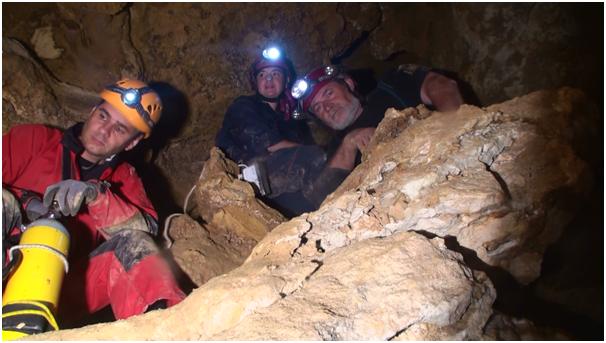The inhabitants of the Movile Cave are like no others on planet Earth. After being cut off from the rest of the world some 5.5 million years ago, a unique ecosystem has sprung up here, despite the total lack of sunlight and toxic air that would prove too harsh for most terrestrial animals.
Located just a few miles west of the Black Sea in Romania, the Movile Cave was first discovered by humans in 1986 when workers of the Socialist Republic of Romania were looking for new ground to build a nuclear power plant. Nowadays, it is blocked off by the authorities and only accessible with special permission, although the central caverns are naturally “guarded” by a series of vertical shafts and narrow limestone tunnels.
Once in the depths of the cavern, the air contains less than half of the amount of oxygen found in open air and is brimming with high levels of carbon dioxide and hydrogen sulfide. It is also pitch black and hasn’t seen a beam of sunlight for millions of years.
Thanks to this cocktail of super-harsh conditions, the site has proved to be a goldmine for biologists. One of the first attempts to document this bizarre ecosystem can be found in a paper written in 1996 by a trio of biologists from the University of Cincinnati and published in the journal Science.

Within this harsh environment, life seems to be booming. In the 1996 study, the three scientists identified 48 species – 33 of which were totally unique to this one cave. Along with species of spider, pseudoscorpion, woodlice, centipede, later studies have also found that leeches, snails, and many other species inhabit the caverns.
Most of the teeny creatures in the cave have no vision and lack pigment. After all, who needs sight or to look pretty in the pitch black? They’re also, on the whole, a spindly bunch, with extra-long limbs and antennae that help them navigate in the darkness.
As if this cave was not alien enough, it was the first land-based ecosystem to be discovered that relies on chemosynthetic bacteria. Most ecosystems require photosynthesis to harness energy from sunlight. However, since there’s no natural light in the cave, the bacteria need to get their energy and carbon directly from chemical reactions, such as the oxidation of sulfide or the oxidation of ammonium.
In this sense, the Movile Cave is more comparable to the freaky ecosystems we find living in extreme deep sea environments near hydrothermal vents.
“The Movile Cave system is similar to deep sea vents in having a chemoautotrophic food base and a diverse biota. However, the cave system appears to lack the symbioses between chemo-autotrophic microbes and animals so characteristic of deep sea vent communities,” the researchers from the University of Cincinnati conclude in the 1996 Science paper.
There are still many mysteries that lie deep within the Movile Cave. Even after decades of knowing it exists, researchers believe there are still many more inhabitants to discover, some of whom could hold insights into evolutionary biology and even the nature of life itself.
An earlier version of this article was first published in May 2016.
Source Link: Bizarre Life Lurks In Movile Cave After Being Sealed For 5 Million Years